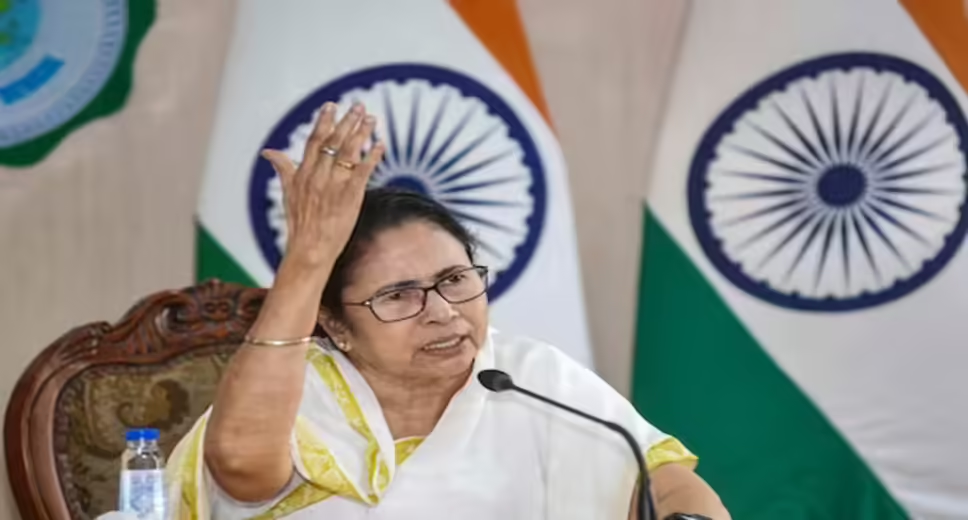'We Are Not Imposing Anything on Anyone', Says Mamata on Bengali Language Controversy

Discrediting the opposition's assertions regarding the state government's alleged imposition of Bengali on students, West Bengal Chief Minister Mamata Banerjee clarified on Wednesday that students retain the freedom to select their initial language, and the state will not intervene in this choice. Banerjee disclosed that the state cabinet had recently embraced a three-language approach, firmly emphasizing that there exists no intention to enforce Bengali as a mandatory subject.
Banerjee debunked misinformation, underscoring that the three-language framework was approved during a cabinet meeting. She delineated the structure: the mother tongue assumes precedence as the first language, while students reserve the prerogative to elect their second and third languages. Bengali will naturally be the first language for those enrolled in Bengali-medium institutions. For the remaining two languages, students can opt from English, Hindi, Nepali, Gurmukhi, Alchiki, and other options.
Speaking at an administrative event in Jhargram to commemorate the 'International Day of the World's Indigenous Peoples', Banerjee expounded on the language policy in distinct settings. She affirmed that learners in Alchiki-medium schools will have their mother tongue as the primary language throughout primary classes. As they advance, they will be required to choose two more languages, including Bengali, Hindi, or English. Alchiki, the official script for Santhali language and literature, is upheld in this context.
Banerjee iterated that in Darjeeling, where Nepali-medium schools prevail, students will persist with their study of Nepali and subsequently select two more languages of their preference. For Rajbongshi-medium institutions, Rajbongshi will function as the initial language, with the option to elect Bengali, English, or Hindi as the supplementary languages. This dispels any misconception of Bengali being thrust upon the populace.
Addressing the linguistic landscape of Bengal, Banerjee acknowledged the prevalence of Bengali-medium schools while recognizing the presence of English-medium ones. She underscored that individuals who converse in Bengali may naturally opt for Bengali as their primary language, while English, Nepali, Urdu, Alchiki, and other languages can serve as supplementary selections.
Elaborating on the new education policy, Banerjee highlighted that students in grades 5-8 will be required to grasp three languages, with Bengali being a priority. The initial level will feature instruction in two languages, with the mother tongue being one. Meanwhile, students in grades 5-8 will embrace proficiency in three languages, with the third language being either regional or foreign.
Banerjee further attested to her government's commitment to the Santhali community's aspirations. She revealed ongoing efforts to establish a dedicated segment within the school education department, aimed at bolstering sub-regional languages within educational institutions.
